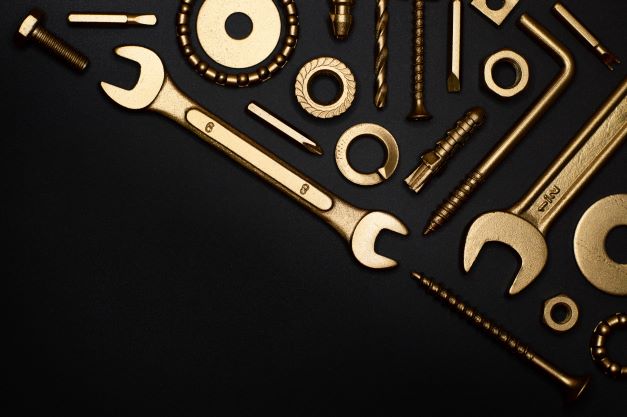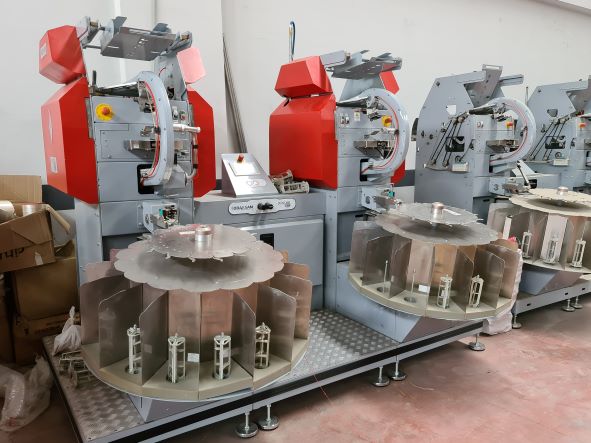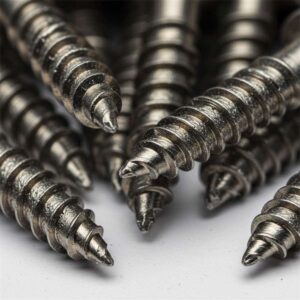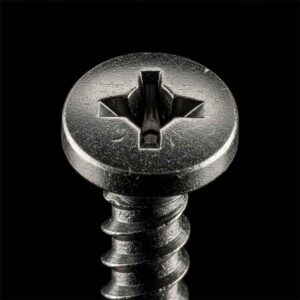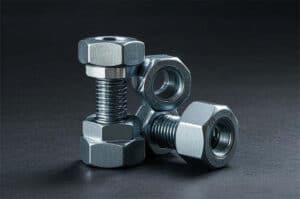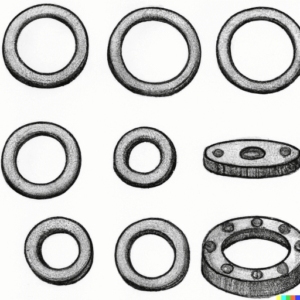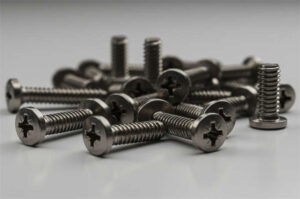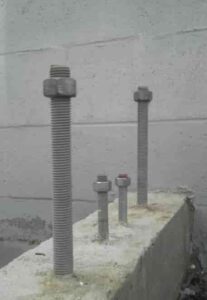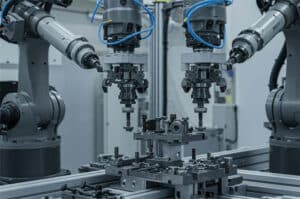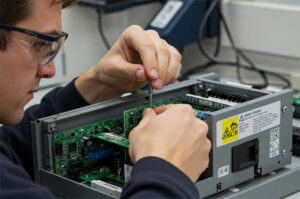What Are the Basic Types of Bolts?
By definition, bolts belong to the classification of threaded fasteners with a male (external) thread that mates with female (internal) threads of other fasteners. It consists of a head at one end, under the head is a smooth shank, and a threaded shaft by the middle. Bolts are one of the most used fasteners in the world, with a wide range of industrial applications from heavy-duty to critical assembly.
The basic types of bolts are; Anchor bolt, Carriage bolt, Flange bolt, Hanger bolt, Hex bolt / Tap bolt, Lag bolt, Sex bolt, Square head bolt, Stud bolt, T-head bolt, Toggle bolt, and U-bolt.
Anchor bolt
From the word itself ”anchor”, they are used in the construction industry for concrete or masonry structural application. They secure the structural component into the concrete slab or poured foundation.
Carriage bolt
This bolt was named after its original purpose, which was mainly in carriages. Carriage bolts are generally used in metal-to-wood applications.
Flange bolt
Is a type of self-locking bolt that is used in hinges and locks to provide security while able to distribute a bearing load with a washer attached under its head. Flange bolts are also called frame bolts that feature a dome head and square section underneath.
Hanger bolt
Hanger bolts consist of a tapered wood screw point on one end and a machine bolt thread on the other used in timber construction.
Hex bolt / Tap bolt
Mostly referred to as hex bolts, is the most common type of bolt featuring a head with six sides or a hexagonal shape. They can be fully or partially threaded with variations of different types, they are used in machinery and construction.
Lag bolt
Lag bolts and lag screws are typically used to connect heavy lumber because they create their mating thread on wood and other materials when tightened together.
Sex bolt
Sex bolts are known by many different names, they require a female threaded component instead of a nut. This mating fastener consists of a male threaded screw and a threaded barrel.
Square head bolt
Square head bolts are defined by their head with a square shape or four-sided instead of six (hexagonal or hex bolts). The head design facilitates easier grip of wrench tools in tightening while they present a machine screw thread.
A stud bolt
is a headless bolt with threads on each end and operates by fastening objects with two tightened nuts on the sides.
T-head bolt
T-head bolts or hammerheads are inserted into a slot with an applied nut that secures the turning of the bolt. Commonly used in concrete embed channels of construction and automotive industry.
Toggle bolt
Sometimes referred to as butterfly anchors, toggle bolts have a feature of expanding nuts in the shape of wings.
U-bolt
shaped like the letter “U”, U-bolts are partially threaded in both ends. The curved section allows the support to pipeworks like liquid and gas flow.
Read more about bolts and nuts with these articles>>
What are the types of bolts fasteners?
What are nut and bolt fasteners?
Why should I select the right combination of bolts and nuts?
Types of bolt heads
Bolt head have variations of the kind that depends on their functionality and enables the installation grip of tools. The types of shapes classify them and some bolt heads can have drives like screws.
Hex
Is the most common type of bolt head, Hex (hexagonal) head can be grabbed by a tool from all angles and sometimes with only a hand.
Domed
head-on bolts allow a locking system that makes it difficult for them to be extracted once installed.
Bent
Bent heads can be available in different shapes depending on the required specification.
Square
With the four-sided (bolt) head it allows an easy grip for tools during tightening and loosening.
Pentagon
This type of head is designed to resist tampering from Torx and hex tools.
Flat
heads are called countersunk which allow the saving of space on applications. They are convenient for many uses in areas that require smooth surfaces. (Ex. elevator bolts for elevator floors and walls)
Know the bolts in sizes
Bolts by character have different sizes that allow classification of their function and effectiveness. There are variations of terms to remember in knowing the sizes of bolts such as;
Major diameter
Major diameter refers to the imaginary diameter of the cylinder from the top of an external thread.
Minor diameter
is a contrast to the imaginary cylinder at the top of the thread, this is located from the tread grooves.
Crest
Crest is the prominent (upper symbol) of the parts of threads.
Root
The root is where the grooves of bottom threads are which are the two flanking spaces of surfaces.
Flanks
are the straight sides that connect the crest and root in threads of bolts.
Thread angles
are the spaces between threads/flanks.
Pitch
is the measured distance of paralleled axis.
A guide to bolt grades
Usually, bolts are measured by their strength. Bolt grades are indicated in markings (raised dashes or markings) in bolt heads, they are the indication of strength on bolts or the manufacturer’s rank.
The primary system of bolt grades
SAE | SAE or Society of Automotive Engineers this grade indicates raised dashes on bolt heads Grades: 2 (low strength) – low or medium carbon steel 5 (medium strength) – medium carbon steel, quenched and tempered 8 (high strength) – medium carbon alloy steel, quenched and tempered |
ASTM | American Society for Testing and Materials (ASTM) indicates bolts markings in the head for bolt grades such as letter A and three numbers Grades: A307 – low carbon steel A325 (type 3) – carbon or alloy steel with or without boron A354 BD – alloy steel, quenched and tempered |
Metric | Metric bolt grades are known as a property class set by ISO (International Standard Organization). This system uses two numbers separated by a dot. Grades: Class 8.8 – medium carbon steel, quenched and tempered Class 10.9 – Alloy steel, quenched and tempered Class 12.9 – Alloy steel, quenched and tempered A2 & A4 stainless steel – alloy with chromium and nickel |
Know the fasteners in their processes and technicality>>
What are high-tensile fasteners?
Where are bolts applied?
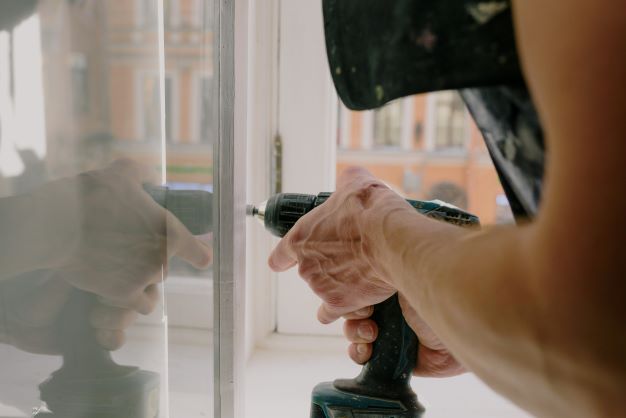
Bolts have wide usage because of their quality in holding objects with strength and security. They not only possess great convenience but also the efficiency of securing materials together in many forms and functions. As expressed in the previous topics above, bolts have special classifications according to their purpose, which is why they are the preferred choice in many applications. Usually, bolts are considered for their characteristic to provide durability in critical areas such as heavy-duty assemblies and related chemical component workpieces. Here are some of the known industries that require bolt applications;
- Automotive
- Aerospace
- Electrical
- Building and Construction
- Renewable energy plants
- Infrastructures
- Piping Industry
- Manufacturing industry
What Bolts Should Be Used With Aluminum?
Aluminum is a type of chemical element with a lightweight or silvery metal appearance. They are strong and flexible materials that are used in common industries that require fastening. It can be tough to decide the type of fasteners or specifically bolts for use in aluminum surfaces because the element usually reacts to other metallic substances.
Corrosion is the number one enemy of bolts in applications. It does not only limit the chances in aluminum surfaces but also in some components. However, aluminum is widely used in everything, and knowing the types of chemicals that will affect them is important to ensure safety in bolt assembly.
The following components are the best options to prevent corroding on fastener material and aluminum surfaces.
Coated Steel
Coatings in fasteners are proven to improve their performance especially in resisting corrosion. There are many different variations of coatings and ways processes to apply them on bolts. Painting the bolts is an option that adds an extra layer of security but a thick coating on a very reactive metal can prevent failures and corrosion to aluminum structures. Non-corrosive elements like zinc and aluminum flakes as a type of coating can practically make any fastener safe to use with aluminum as long as the coating is intact.
Electroplated Steel
Electroplating is another form of coatings on fasteners which is more commonly known as galvanizing. The process of electroplating involves adding a layer of corrosion-resistant elements into the external body of a fastener, this technique also includes electricity which creates a tight bond of coating to the material. The disadvantage of electroplated steel is that it can wear away in time or get scratched off during installation. However, they are a less expensive option as protection for fasteners and are still a preferable choice for many applications because they offer the same results as others.
Aluminum
The safe way to have compatible elements is by using the same metal in structures. Aluminum fasteners are one of the options for preventing corrosion to aluminum surfaces. This process is called the two-metal reaction which eliminates the presence of moisture that allows the weakening of elements. Yet aluminum fasteners are not a good option as the materials lack the strength to shearing resistance and are best for less heavy-duty uses.
Non-metal Fasteners
As the vast options are not limited to non-metal elements, plastics such as nylon are also used as a fastener material nowadays. They have more limited capabilities in strength than aluminum fasteners yet they are widely used in medical and food-manufacturing applications. Plastic fasteners propose a higher aluminum corrosion resistance.
Conclusion
The type of bolts that can be used in aluminum surfaces are not limited to their characteristics but to the kind of material and coating, they are built with. These options apply to every fastener material even to the most metal reactive such as brass. For most applications the best option that counteracts corroding in aluminum surfaces is galvanization, they offer less cost and almost the same reaction as every coating.
Read more and learn more>>
What are quick tips and tricks for using fasteners?
What are the different kinds of fasteners?
Why Are Washers Always Used With a Nut and Bolt?
Figure 3. A washer is a fastener
Washers are considered a fastener component that applies to screws and bolts. They are ring-like metal that has a hole in the middle for insertion through the body of the threaded fasteners. Washers are typically recommended because they function as extra protection for the safety purposes of an assembly. They can evenly distribute the load and force taken by the bolts preventing them from damage breaking and cracking. With different types of washers that fit according to the specified purpose, they can also give a smooth surface push in nuts while tightening them to prevent loose bolts.
Types of washers
Spring washer
is a type of washer with the characteristic of a ring cut by spring steel and a slightly raised end from up and down. They are placed below a nut or bolt to prevent the nut from loosening by putting the received pressure against the nut during vibration.
Lock washer
From the name itself, lock washers are applied to lock nuts and bolts, preventing them from loosening. They are generally used in applications that require protection from vibration and corrosion, like trucks, cars, etc.
Plain washer
This Washer is generally a standard Washer that is a plain or flat disc. They are inserted below a nut or a bolt to distribute the force uniformly to the entire surface.
Still Looking Where To Buy Fasteners?
Whether you are aspiring to be a fastener distributor or need some fastener materials for your next project, there is a big question of where to find a supply of the best quality fasteners. Generally, the demand for fasteners never ceases in the market industry which makes the manufacturers in great opportunity to cater to the industrial needs of the world. The wide options of fastener companies from around the globe offer many qualities that specify the functionality of fasteners in different applications.
To understand better the special attributes of fasteners in accurate and exact features to what you need, you must determine the specifics of the application.
How to find a reliable fastener supplier and manufacturer?
Fasteners are essential for final products and different economical structures in today’s world. Certain characteristics should be considered when you are sourcing fasteners for important assemblies. Defining a reliable fastener company can be tough to conclude when there are vast characteristics that should be addressed when choosing that one supplier who can meet your needs. But what makes a fastener supplier and manufacturer reliable? Let’s distinguish some features of what an excellent fastener company comprises.
Well-established
A well-established fastener company has professional qualities that can cater to a wide selection of industries with guaranteed high-quality fasteners. Often, companies that are considered well-established have been around for a long time or years of service. They qualify through their service of experience and standards in management and production.
Quality-driven
Some fastener companies are renowned distributors that supply the demand for established brands and products. And some are manufacturers of their materials and final products. Either way, the task of sustaining the demand for fasteners is the significant order that drives fastener companies to serve the best quality fastening materials.
Stands by company principles
Look out for company visions, missions, and objectives. They are key principles that help determine what the company stands by in virtue. Knowing a fastener company’s character may also be a factor that enables their performance in service and quality of products.
Customer-first policy
If they are innovating the best fastener solutions for the security and success of fastener assembly, then it is another way of going to the lengths of service to customers. Putting the customer’s needs first is a key factor that determines the quality of service a fastener company is capable of.
Availability of logistics
The company can have all the qualities you may choose and look for but the availability of service in import and export should be available too. It’s a known act to many suppliers to accommodate orders overseas and around the globe for better reach of the improvement and evolution of trade on products. Best to find a fastener supplier that is reachable in many aspects.
More related topics here>>
Don’t Be Scammed! How Can You Find Reliable Fastener Suppliers and Manufacturers in China?
Where can I get a low-price nut and bolt from China?
Why choose Prince Fastener Manufacturing Co., Ltd?
Prince Fastener is one of the leading fastener suppliers and manufacturers in China, and they have years of experience in the production of industrial parts. With a one-stop fastener service, they are trusted by many establishments and organizations to fabricate the best and standard solutions in fastening components. The company has excelled in many areas of fastener sustainability as well as complying with international standards by setting an advanced management system. It’s safe to conclude that they can meet different capabilities in a diverse range of fastener types and related products to provide impeccable service to every customer.
Key advantages
Custom Orders
Customized fasteners are welcomed in fabrication by Prince Fastener. They cater to OEM, ODM, private label, and other specified drawings from customers.
Factory Direct
A manufacturing facility that has advanced technology and machinery to produce the best-quality fastener products.
Time Delivery
Estimated delivery and timely service to customers.
Customer Services
Always providing the lengths of service from inquiries to technical data and after-service care is possible with Prince Fastener.
FAQs About Prince Fastener’s Services
1. Can you manufacture a wide range of custom screws and bolts?
As Prince Fastener is continuing to grow in the industry we are proud to be one of the best OEM manufacturers in China with more than 30 years of experience we advance in developing solutions to various requirements of our customers and clients. We can assure to cater to your expectations may it be in sizes, forms, colors, or kinds of fastener screws, bolts, and nuts.
Do you cater to bulk orders outside of your country?
We specialize mainly in distributing fastener screws all over the world. We have a top-tier factory with our machinery equipment from Taiwan that can accommodate customization of fastener screws, mass-producing types of screws, and even different forms of screws, bolts, and nuts.
Prince Fastener has been proven to be efficient in high-quality production since its establishment and is the leading manufacturer of stainless steel screws in China.
2. What difference can prince fastener offer from other brands?
Typically, our capacity as an OEM manufacturer can be well compared to the other brands but we stand out best in going an over-the-top experience for our clients and customers. Prince Fastener can offer the best kind of fastener screws, bolts, and nuts made from special raw materials that are guaranteed in strength, durability, quality, calculated process, sustainability in benefits, and assurance of overall product satisfaction.
3. How can I test if your fastener screws are what you advertise?
We can ensure the standard features of prince fastener products that’s why we opt to provide samples free of charge to customers with only paying freight rates.
4. Can you offer a reasonable price or factory quotation for your products?
Prince Fastener is as driven as how we manufacture our products in setting our price offers. We only not set our standards for building excellence in quality but as well as having competitive costs for our fastener screws, bolt, and nuts. If you want a price quotation we are very well available to cater to your inquiries, please contact us right away.
5. What are the different types of fasteners that you can produce in bulk?
Our company is not only driven to serve in quality but also in quantity, we are able to mass produce many types of fasteners according to the number of needed or more by customers. Our main products include self-drilling screws, self-tapping screws, drywall screws, chipboard screws, machine screws, stainless steel screws, bolts and nuts, and custom screws.
